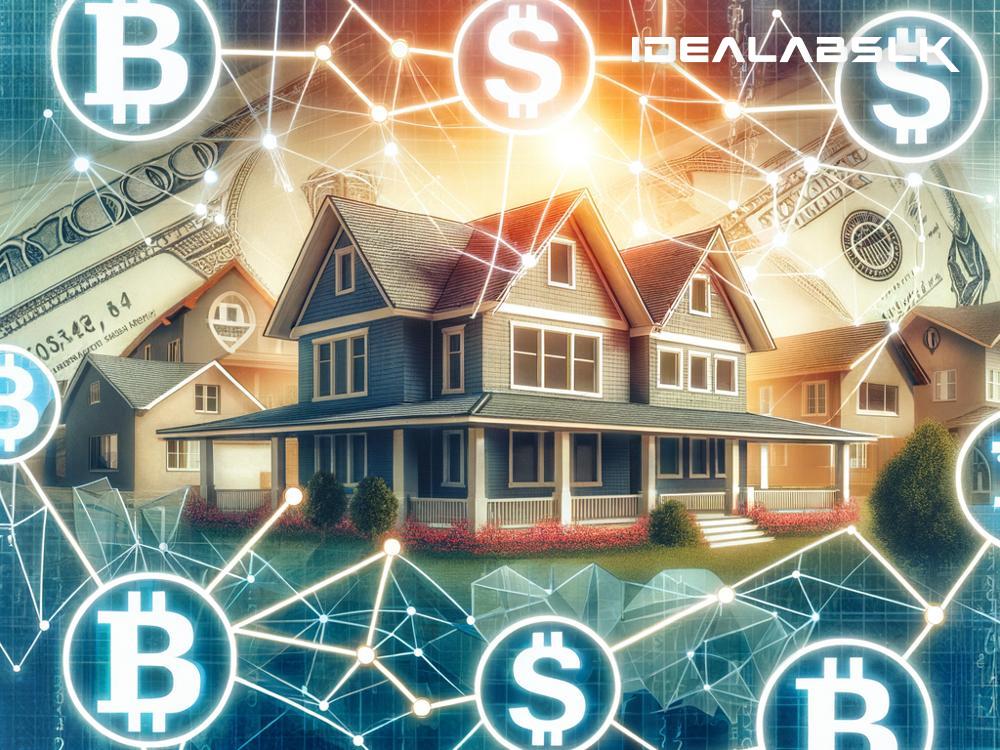Unraveling Blockchain in Real Estate Capital Flow Management: A Simpler Perspective
In the fast-evolving real estate landscape, the emergence of blockchain technology is reshaping how capital flows in and out of the sector. While blockchain might sound like a high-tech buzzword reserved for techies, its impact on real estate is more down-to-earth and considerable than many may think. So, let's break down this complex concept into bite-sized, straightforward pieces to understand how blockchain is revolutionizing real estate capital flow management.
Understanding Blockchain in Simple Terms
Imagine a ledger or a record book that's not held by one person or organization but is distributed across a network of computers globally. This ledger securely records transactions or exchanges of value, such as buying a property, in a way that is transparent, secure, and tamper-proof. That's the blockchain, a technology allowing digital information to be distributed but not copied, creating the backbone of a new type of internet originally devised for the digital currency, Bitcoin.
The Old Way vs. The Blockchain Way in Real Estate
Traditionally, real estate transactions involve multiple parties: buyers, sellers, banks, lawyers, and real estate agents. Each party maintains its own records, and the process is often manual, paper-intensive, and prone to errors and fraud. The transaction process can be slow, taking days or even months to complete, especially when it comes to the movement of capital.
Enter blockchain. With its ability to provide a single, immutable record of a transaction accessible by all parties, it promises to streamline and secure the process significantly. But how does this impact the management of capital flow in real estate? Let's delve deeper.
Blockchain and Real Estate Capital Flow Management
Real estate capital involves the funds used to finance real estate purchases, development, and investment. Managing these funds efficiently is crucial for investors, developers, and financial institutions. Here's where blockchain is making waves:
-
Transparency: Blockchain's transparent nature ensures all parties can see and verify transactions in real time, reducing the likelihood of disputes and the need for intermediaries, which can slow down the capital movement.
-
Security and Trust: The technology's secure, tamper-proof characteristics build trust among parties. Funds transferred over a blockchain network are encrypted and can only be accessed by authorized parties, significantly reducing the risk of fraud.
-
Efficiency and Speed: Blockchain can automate many of the manual processes involved in real estate transactions through smart contracts — self-executing contracts with the terms of the agreement between buyer and seller directly written into lines of code. This automation speeds up transactions, ensuring that capital flows more swiftly from investors to projects and properties.
-
Accessibility and Cost Reduction: By streamlining processes and removing intermediaries, blockchain reduces transaction costs and entry barriers, making it easier and cheaper for small investors to participate in real estate markets.
-
Liquidity: Real estate is traditionally considered an illiquid asset because it takes time to convert to cash. Blockchain facilitates the tokenization of real estate assets — dividing property into tradable shares or tokens on a blockchain. This can enhance liquidity, allowing investors to buy and sell fractions of property assets quickly and easily.
Real-World Applications and Future Potential
Several startups and established companies are exploring blockchain applications in real estate. For instance, property tokens are being traded on blockchain platforms, enabling investors to own fractions of properties across different locations. Meanwhile, some companies are using blockchain to streamline property and title management, reducing paperwork and increasing efficiency.
Looking ahead, the potential of blockchain in real estate capital flow management is vast. We could see more integrated platforms where investors seamlessly trade real estate tokens, akin to stocks on an exchange. Blockchain could also further democratize real estate investment, opening opportunities for a broader range of investors.
Closing Thoughts
The fusion of blockchain technology with real estate capital flow management is undeniably complex, but its implications are straightforward and transformative. By enhancing transparency, security, efficiency, and liquidity, blockchain is not just streamlining the way capital moves in real estate; it’s also making it more accessible and trustworthy. As we move forward, the continued evolution and adoption of blockchain could redefine the foundational mechanisms of real estate investment and finance.
So, while blockchain might seem like a techy maze at first glance, its application in real estate holds the key to simpler, faster, and more reliable capital flow management. It’s an exciting time for both tech and real estate enthusiasts, as we stand on the brink of a new era marked by innovation and change.

